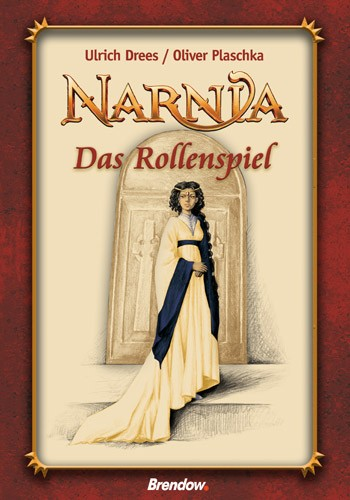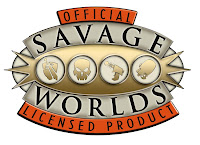George Lucas saved Marvel Comics
A few weeks ago I accompanied my friend to Minnesota's Midwest Comic Convention. I hunted around for cheap, old Marvel G.I Joe comics and my friend's mission was to have Howard Chaykin sign one of his two mint condition Marvel Star Wars issue #1. He almost didn't do it, but we discussed it and finally approached Mr. Chaykin.
It was an interesting meeting. Howard said he didn't expect much from the book, but had he known what Star Wars was to become, he would've taken more care with the art for the book.
I find a lot of Chaykin's art pretty good, his DC Comics Blackhawks in particular.
Its with this latest meeting that I read Shooter's blog about Marvel's near death experience.
Jim Shooter's blog recounts how Marvel Comics almost died in the '70s and how Star Wars saved it. In his opinion it was Roy Thomas who saved Marvel. I think it was George Lucas.
It was an interesting meeting. Howard said he didn't expect much from the book, but had he known what Star Wars was to become, he would've taken more care with the art for the book.
I find a lot of Chaykin's art pretty good, his DC Comics Blackhawks in particular.
Its with this latest meeting that I read Shooter's blog about Marvel's near death experience.
Jim Shooter's blog recounts how Marvel Comics almost died in the '70s and how Star Wars saved it. In his opinion it was Roy Thomas who saved Marvel. I think it was George Lucas.
link
Tuesday, July 5, 2011
Roy Thomas Saved Marvel
As previously mentioned, Marvel was a mess throughout the mid-1970’s and during my two years as “associate editor,” from the beginning of 1976 through the end of 1977. Almost every book was late. There were unscheduled reprints and fill-ins, and we still just plain missed issues here and there. Many books, despite my best efforts to shore up the bottom were unreadable. Not merely bad. Unreadable. Almost all were less than they ought to be.
There were a few exceptions. Roy’s color Conan and B&W Savage Sword. Master of Kung Fu by Moench and Gulacy. Wolfman’s Tomb of Dracula, with Gene Colan and Tom Palmer art. Those were good books. Len’s Fantastic Four, I think, was enjoyable, too. A couple of others, maybe.
A few books had parts that were great and things not so great about them that crippled them.
We can debate the above at length….
However, what can’t be debated is that sales were bad and falling. It was almost all newsstand sales then, by the way. This was before the Direct Market was a significant factor. The comics overall were breakeven at best. Upstairs, the cheesy non-comics magazine department was losing millions. It seemed like the company as a whole was in a death spiral.
Then Roy proposed that we license some upcoming science fiction movie calledStar Wars and publish an adaptation.
Jeers and derision ensued—um, not within Roy’s earshot of course. But he was in California.
The Prevailing Wisdom at the time said “science fiction doesn’t sell.” Adapting movie with the hokey title “Star Wars” seemed like folly to most.
By the way, Prevailing Wisdom also decreed:
“Westerns don’t sell”
“Romance doesn’t sell”
“Fantasy doesn’t sell”
“Female characters don’t sell”
And more. You get the drift.
What sold, said the Prevailing Wisdom, were male super heroes and male dominated groups, especially the marquee stars like Spider-Man or the Fantastic Four. Not so much the “third-string” characters like Daredevil. And there had to be lots of action against marquee super villains interlaced with some soap opera. That was about it. That’s what the “kids in Fudge, Nebraska” wanted. Period.
The Great Proponents of Prevailing Wisdom were Marv and Len.
As I said in an earlier post, a bunch of us hung out a lot after work, including them, a few other staffers, freelancers and me, and we talked shop a lot. Hung out doing what? Well, there were after work dinners, poker games, visits to bookstores…. Marv and Len were physically unable to pass any bookstore that wandered into their path. Various geeky activities—for instance, Marv had the entire Prisoner TV series on film and hosted an all-night Prisoner marathon at his place one Friday night. That sort of thing.
Anyway, when the Prevailing Wisdom reared its head, as in Len or Marv saying “Westerns don’t sell” or whatever, I usually said, “Show me a good one.”
That generally sparked jeers, derision and some debate.
One of the counters to my challenge was—and I am not making this up. I cannot write fiction well enough to make this up—“Good doesn’t sell.”
Generally, proof was cited. “Warlock is good, but it doesn’t sell, nothing by McGregor or Gerber sells….” Etc.
My counter was that, while each of those examples had good, even excellent things about them, they also had negatives. Even Warlock, which was sometimes a daunting read. Sorry Jim. It was colored murkily, too dense—too many words, too many panels—convoluted at times AND usually well off the Marvel mainstream. I would have loved to have seen Warlock in a premium format with room to rock and a little more accessible. No, I don’t mean “simplified,” “dumbed down,” homogenized or compromised in any way. I mean accessible. Easier to get into, easier to hop aboard the ride. And, no, I’m not suggesting “more Marvel mainstream.” Not necessary.
Anyway….
There was a lot of opposition to Star Wars. Even Stan wasn’t keen on the idea.
Even I wasn’t. I had no prejudice against science fiction, but wasting time on an adaptation of a movie with a dumb title described as an “outer space western?”
I was told—don’t know for sure—that George Lucas himself came to Marvel’s offices to meet with Stan and help convince him that we should license Star Wars. I was told that Stan kept him waiting for 45 minutes in the reception room. Apocryphal? Maybe. Roy would know. But if so, it still reflects the mood at the time.
(ASIDE: Lucas, by the way, again, as I am told, but I’m pretty sure this is true, was a partner in Supersnipe Comic Book Emporium, a comics shop on the Upper East Side. A clue to his persistent interest in comics and a comics adaptation.)
I don’t know how Roy got it done. I was just the associate editor, and not privy to much of the wrangling that went on. But, Roy got the deal done and we published Star Wars.
The first two issues of our six (?) issue adaptation came out in advance of the movie. Driven by the advance marketing for the movie, sales were very good. Then about the time the third issue shipped, the movie was released. Sales made the jump to hyperspace.
Star Wars the movie stayed in theaters forever, it seemed. Not since the Beatles had I seen a cultural phenomenon of such power. The comics sold and sold and sold. We reprinted the adaptation in every possible format. They all sold and sold and sold.
In the most conservative terms, it is inarguable that the success of the Star Wars comics was a significant factor in Marvel’s survival through a couple of very difficult years, 1977 and 1978. In my mind, the truth is stated in the title of this piece.






Comments
Post a Comment